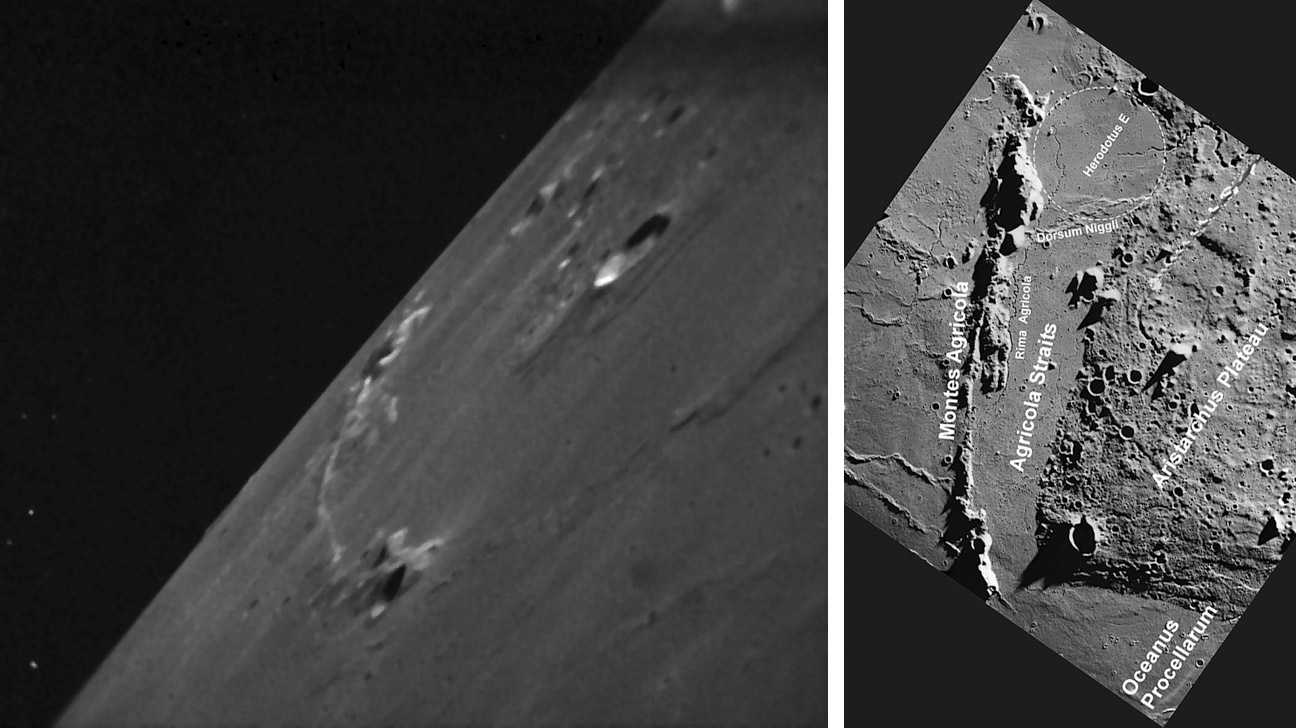Difference between revisions of "February 16, 2014"
| Line 18: | Line 18: | ||
<p><b>Tomorrow's LPOD:</b> [[February 17, 2014|Four in a Row]] </p> | <p><b>Tomorrow's LPOD:</b> [[February 17, 2014|Four in a Row]] </p> | ||
<hr /> | <hr /> | ||
| + | {{wiki/ArticleFooter}} | ||
Revision as of 17:32, 7 February 2015
Ladee's Look

images by NASA Ames and Apollo Image Archive (NASA/ASU)
LADEE is a lunar spacecraft that we've heard little about since it entered orbit just before the Chang'e 3 landed. It turns out that possible atmospheric and dust disturbances caused by the Chinese craft were mostly swamped by dust thrown up by the impact of Geminid meteor shower fragments. From a visual observer perspective the five recently released star tracker images provide a different perspective on familiar places. On the left, the star tracker camera looks along the Earthshine-illuminated Agricola Mountains north of the Aristarchus Plateau. The large, flat-floored crater near upper left of the LADEE view is the ~10 km wide Raman crater, seen full of shadow near the bottom of the Apollo 15 image. The feature I find most interesting is the conical hill near top right on LADEE. I suppose this is not Mount Herodotus, but the odd little cluster of three hills just off the Plateau this side of the Niggli Ridge. Does anyone notice the unofficial name on the annotated Apollo image?
Chuck Wood
Technical Details
Feb. 8, 2014, around 23:45 UTC. LADEE star-tracker camera
Related Links
21st Century Atlas chart 28.
Yesterday's LPOD: Little Rheitas
Tomorrow's LPOD: Four in a Row
COMMENTS?
Register, Log in, and join in the comments.



